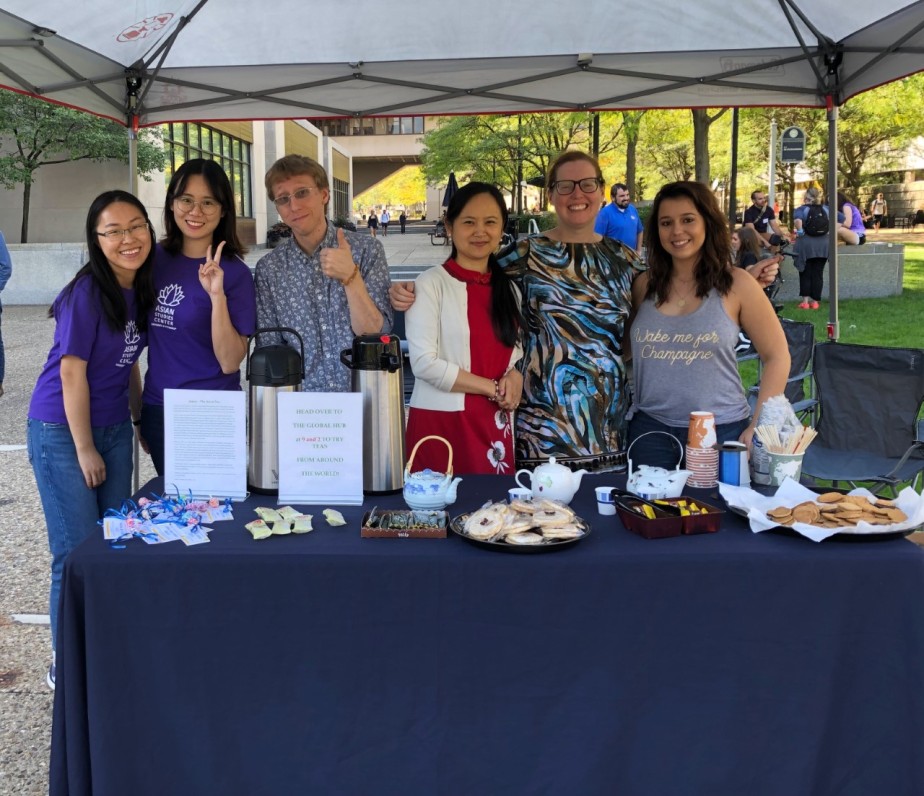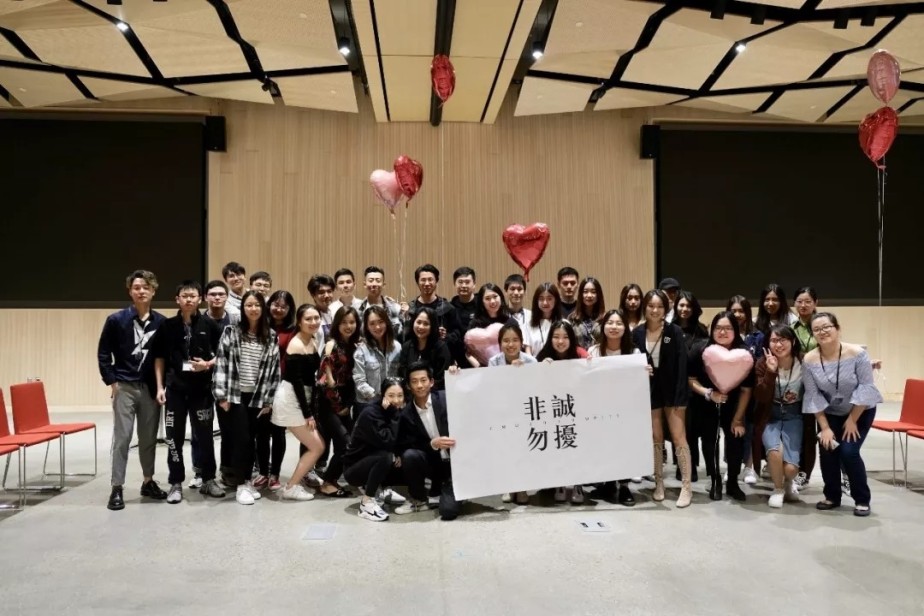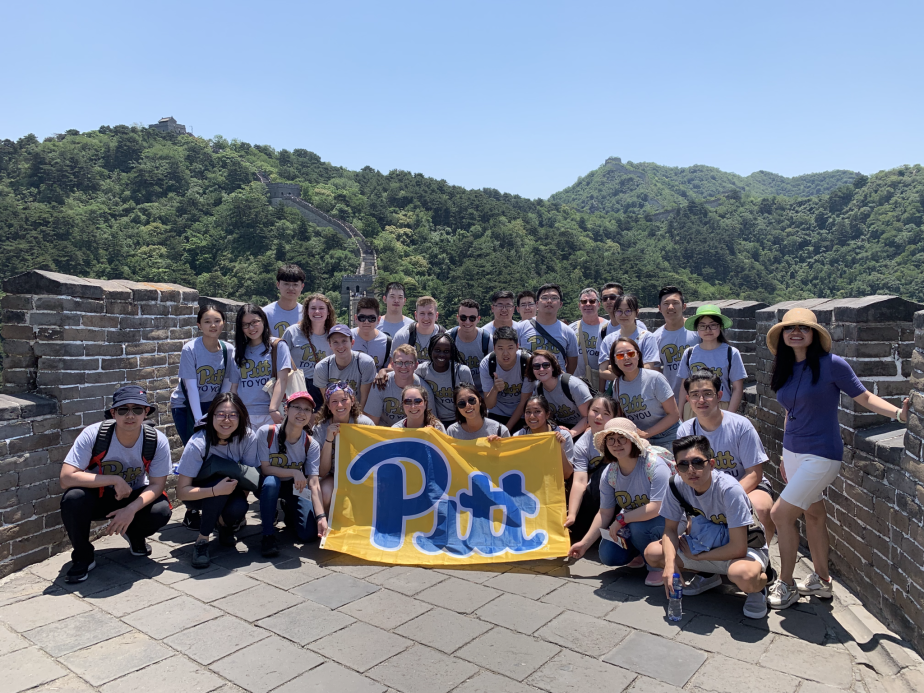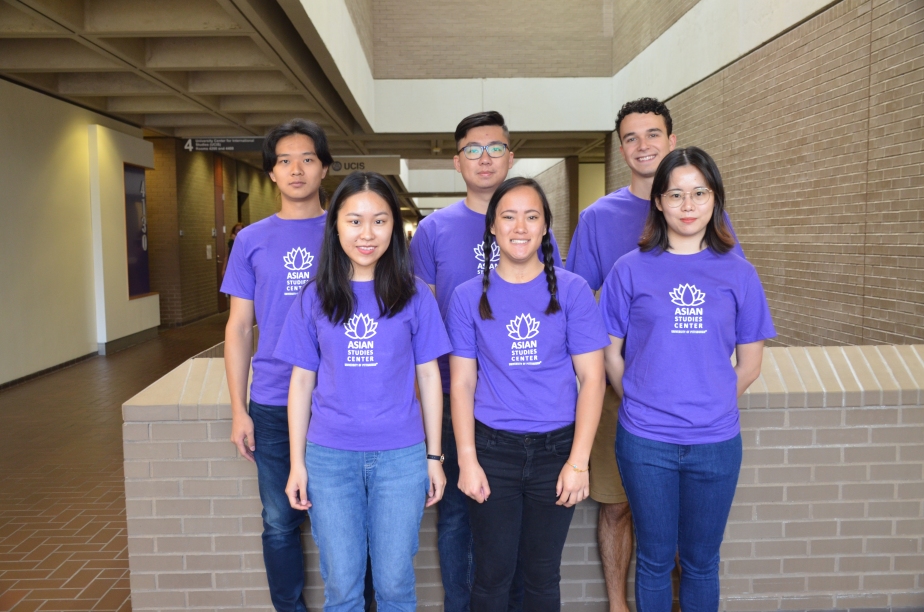By Jenn Nguyen, Asian Studies Center Communications & Media Intern

Can you start with introducing yourself?
I’m Stephen Wuldarski, and I’m the NCTA (National Consortium for Teaching about Asia) Program Assistant. I work with Dr. Hughes and Dr. Jordan, and we help promote better teaching methods. We deal mainly with K through 12 educators and recommend resources and curriculum revisions to help them better teach about Asia, East Asia specifically. East Asia is an area that a lot of teachers tend to not know about, which makes it difficult for them to integrate East Asian related lessons into their curriculum. Our mission is to tear down common misconceptions about Asia and to promote integration about East Asia in multidisciplinary fields. Through a multidisciplinary approach, we’re trying to improve the teaching ability of teachers.
How exactly did you end up at the University of Pittsburgh?
I came to the Pitt as an undergraduate student and came here through a roundabout way. Pitt was not my first choice. I was accepted to colleges for foreign affairs and international relations in Washington, D.C. Due to personal reasons, I had to attend Pitt for a year or so. I ended up attending Pitt for my entire undergraduate career.
When I came to Pitt, although it’s a very big university and some people may be intimidated by that, when you find a place here or find something you’re interested in, that community becomes your family. When I came to Pitt, I found staff, particularly in Asian Studies, that were so willing to help, so interested in their fields, and willing to listen. They wanted to talk and wanted to engage.
At Pitt, I learned that anyone can build and join great communities here. People are so willing to help and so willing to go that extra step. It’s not impersonal. Through meeting and talking to people and being interested and engaged, anyone can make an impact here.
That’s how I feel about Pitt! It’s so big. There’s about 35,000 undergraduate students, but there are so many clubs and organizations. You can join whatever intrigues you and find a new family right away.
There’s a sense of community here, and I think that’s a really nice aspect of Pittsburgh. In some ways, this is a community where people look out for others. At the University, as big and intimidating as it is, every department has a home for students and people who will make sure they’re okay.
What interests you about East Asian studies? At the University of Pittsburgh, do you have a focus on a certain country or sub-topic within Asia?
I’ve been interested in Asia for awhile, even when I was in elementary school and middle school. In particular, I was interested in Japan. This started from watching Studio Ghibli films, such as Princess Mononoke, Kiki’s Delivery Service, and Spirited Away. For some people, that’s where it stops, at the pop culture aspect. But for me, I was interested in answering the question, “What is the culture that produced these things?”
My area of interest is in Japan. Out of Japan, I became interested in China and Korea too. To truly understand Japan, you have to look at China and Korea and their influences.
What is a resource at the Asian Studies Center that you think students and faculty should use more?
The NCTA has a huge resource library dedicated to East Asia. If you work for the University Center for International Studies (UCIS), are a K-12 teacher, or even an Asian Studies Center intern, you can check out something from here. All of it is in English too. There are movies and books, including manga and children’s books. The library has fiction and non-fiction too. The library does not have only academic material.
When I think more broadly of a resource students should use more, I think of lectures. The Asian Studies Center hosts so many interesting lectures. When I was a student at Pitt, I went to a lot of them. Through lectures, I met a lot of Asian Studies Center staff and made connections with a lot of different departments throughout the University. When students attend lectures, they will learn a lot about specific topics and will make lasting impressions on staff and faculty. The Asian Studies Center faculty would love to talk and interact more with students because they are very passionate about the topics that they teach.





